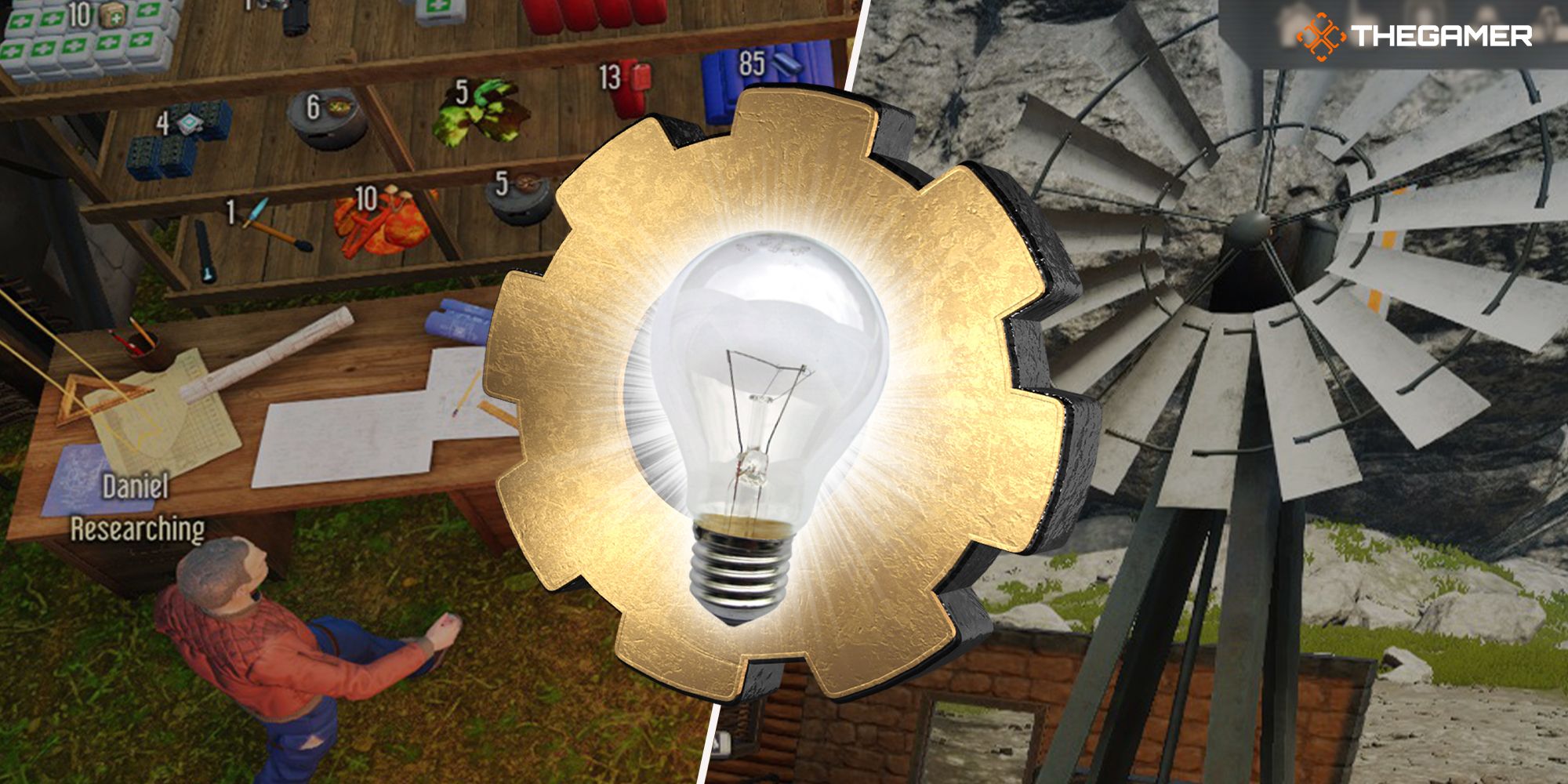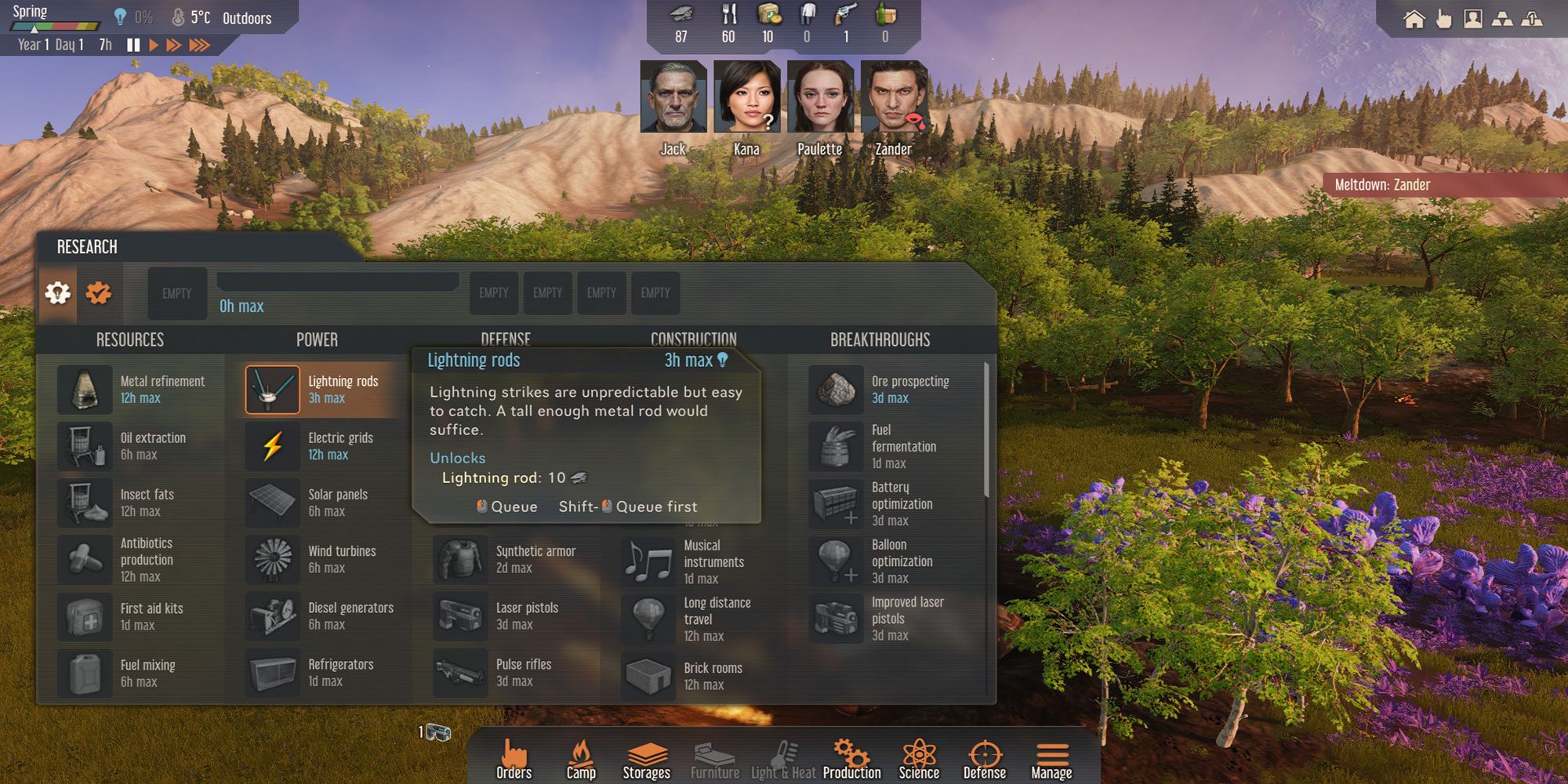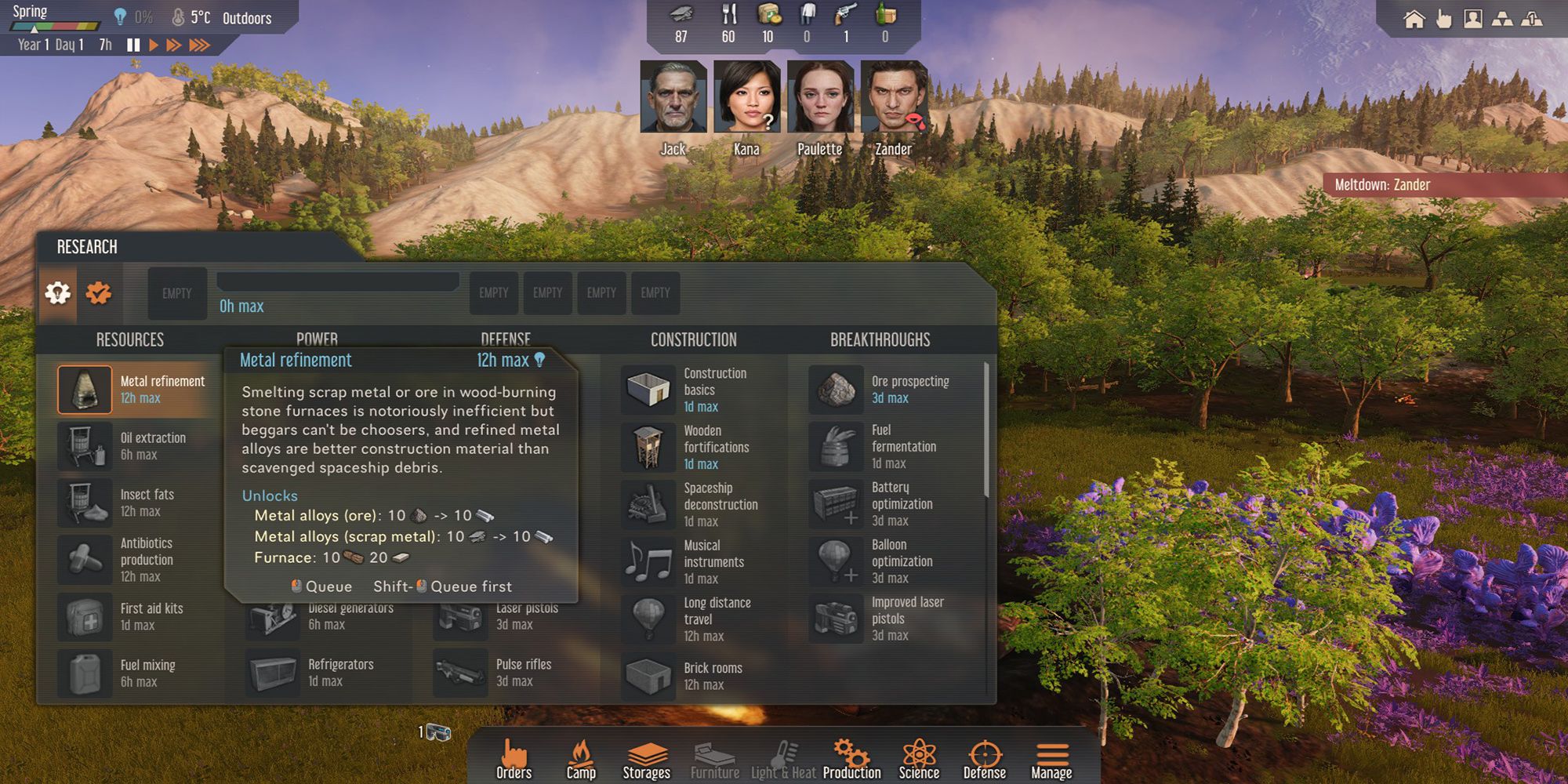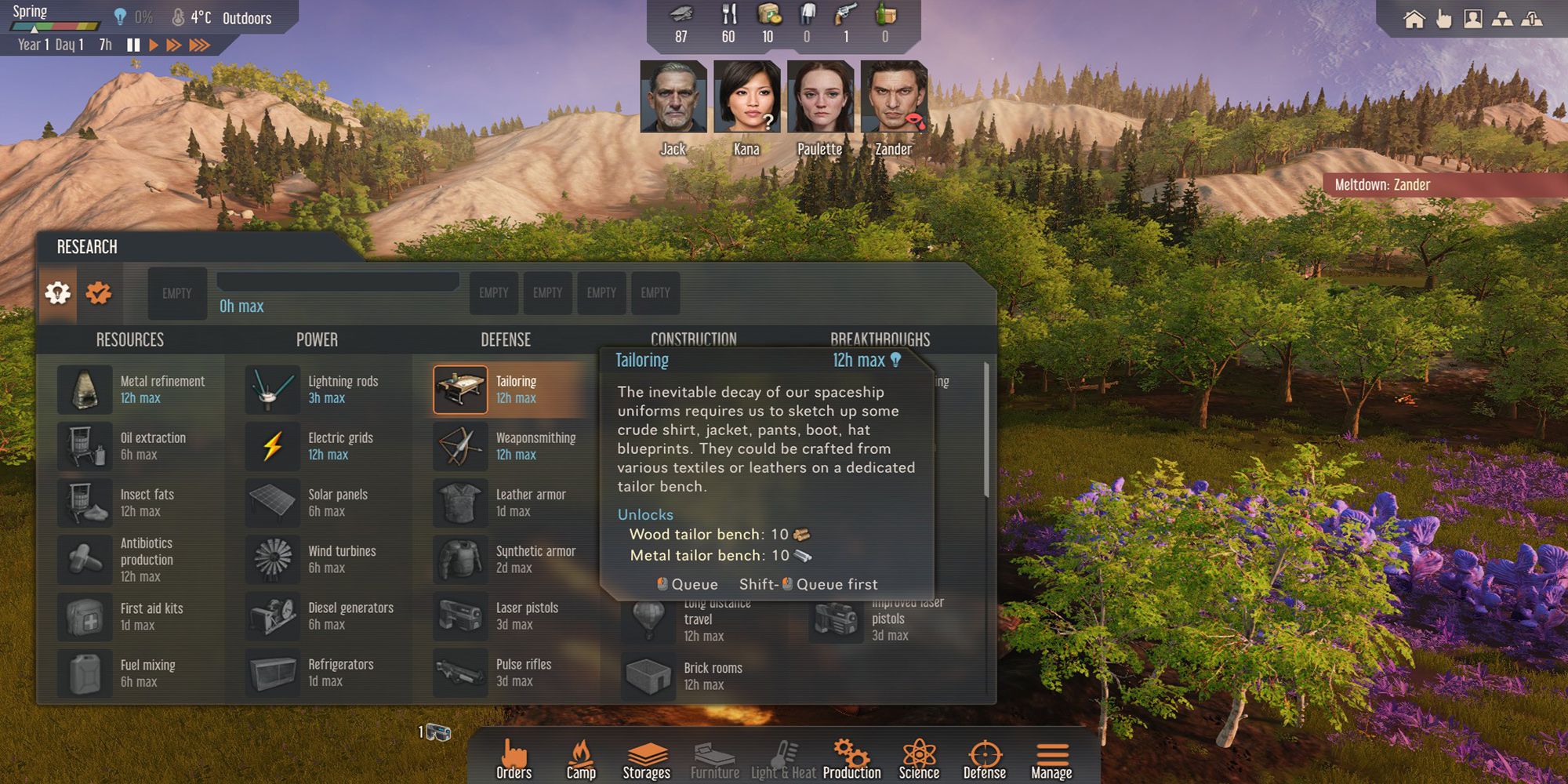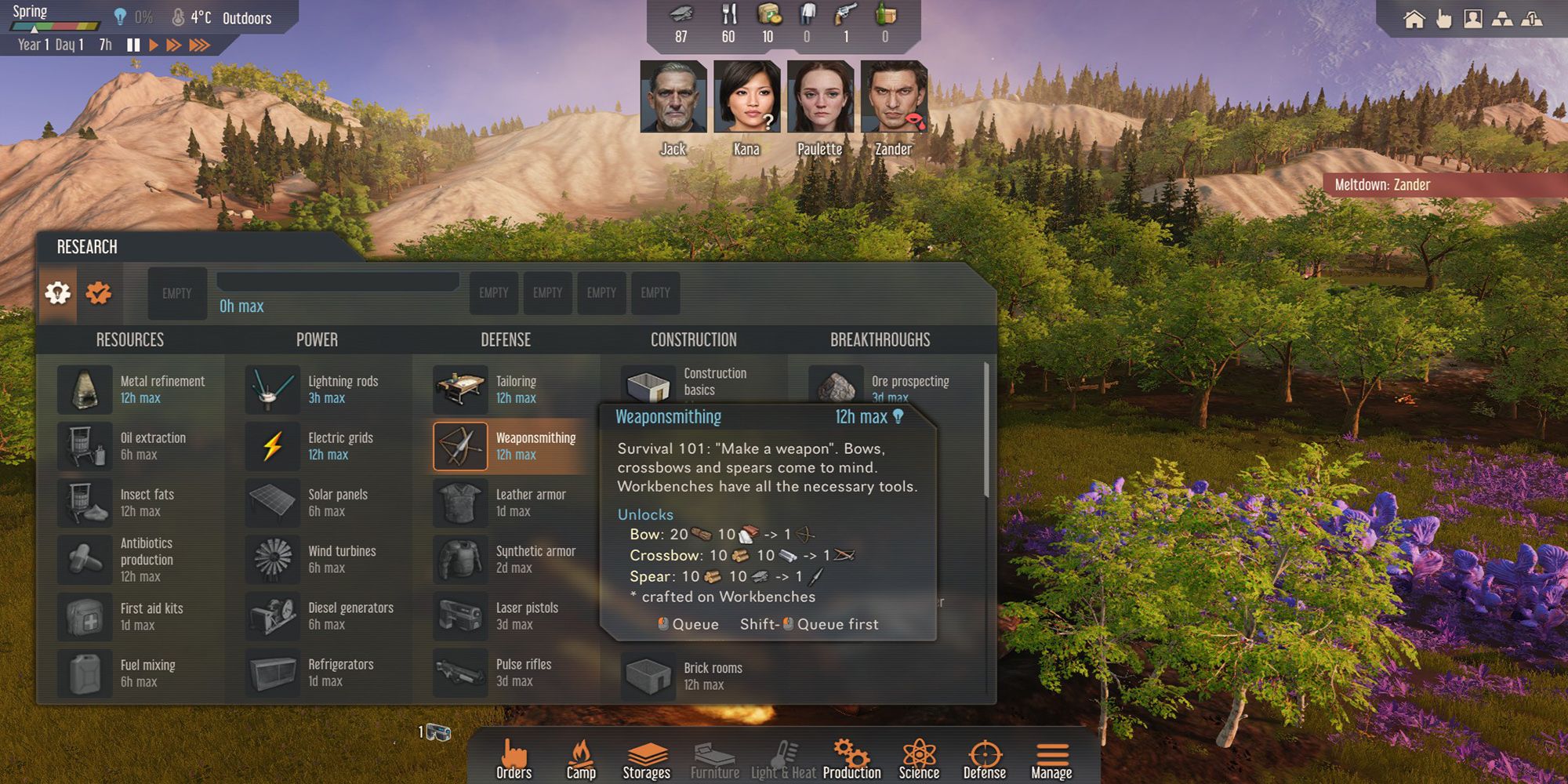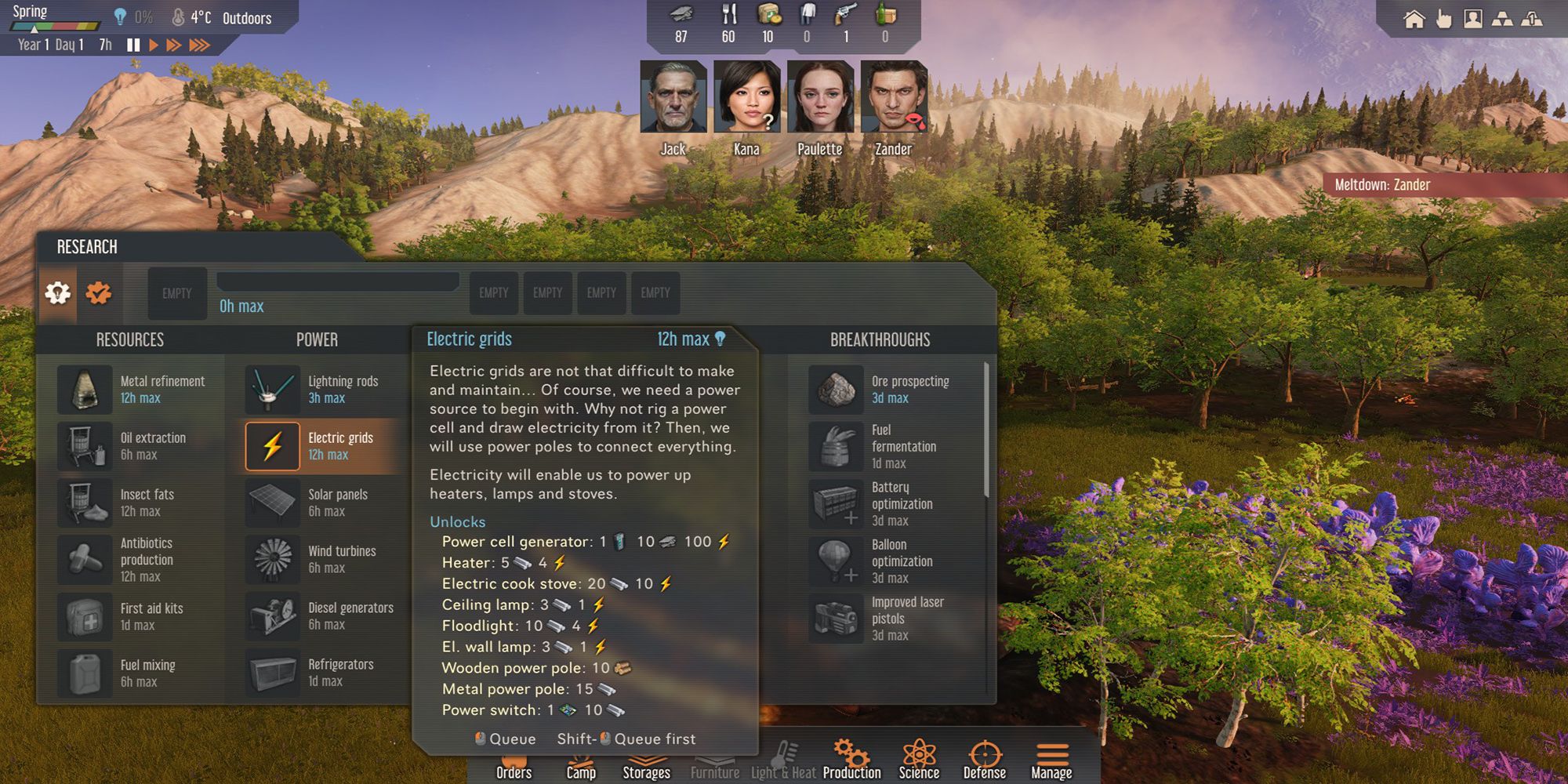As the saying goes, "knowledge is power." And that sentiment could not be more accurate in Stranded: Alien Dawn. While you can scavenge resources from your spacecraft and new home planet, they're worthless if you don't know how to use them. Luckily, constructing a research desk will allow you to make the most of your resources, putting them toward new technology.
But what research projects should you take on first? There are a handful of options available at the beginning of the campaign. Still, while all of them are useful, some technologies are more presently necessary. We found that these five projects are quick to learn and offer immediate benefits that make a strong foundation for long-term survival.
Note: Stranded: Alien Dawn is an Early Access title still in development. Therefore, its current version does not represent the contents of the finished game. As a result, parts of this guide may become obsolete/inaccurate as the title grows and evolves. Additionally, bugs and glitches may inhibit gameplay.
Lightning Rods
Lightning rods are the first project you should take on after crafting a research table because they can save a survivor's life. After all, it's common for the occasional thunderstorm to occur, especially in the Spring. Luckily, a lightning rod absorbs any strikes that enter its surrounding area, thus preventing harm to survivors.
However, from a practical standpoint, lightning rods are quick to research and require few resources. You may spend up to three hours max picking up the new technology. Then, constructing a lightning rod requires ten pieces of scrap metal. Considering your ship's bounty of salvageable scrap metal, finding enough won't be an issue.
Metal Refinement
Unfortunately, scrap metal only goes so far in construction. Sure, you can make basic furniture and shelter from the material. However, you'll need metal alloys if you wish to make more durable/higher-functioning items, such as new appliances. You can research metal refinement to build a furnace that meets those needs.
Metal refinement will take your crew members one full working day to research (twelve hours max). Then, you can construct a furnace with ten sticks and twenty stones. Considering you've likely harvested plenty of sticks at this point, we recommend assigning a crew member to mine local rocks to prepare your furnace materials. Once completed, you can convert scrap metal and ores to metal alloys at a ratio of ten to ten.
Tailoring
While your survivors will begin their journey clothed, you cannot expect their uniforms to last forever. Furthermore, when the Fall and Winter seasons approach, your survivors will require more coverage, especially if they're working outdoors. Therefore, a tailoring bench is a survival essential.
Tailoring is another twelve-hour max research project, so it won't take long to learn. Once completed, you can construct a wood or metal tailor bench. However, we recommend constructing a wood bench since the resource is readily available. The metal bench requires alloys, requiring extra work with the furnace.
While waiting for your research team to complete this project, we recommend you begin crafting textiles and leathers from local flora. Two essential crops are cloth blossoms and skin barks, which will make cloth and veggie leather, respectively.
Weaponsmithing
You cannot expect to coexist peacefully with local fauna forever. While plenty of peaceful animals pass through your camp, others are predatory and dangerous. Your first encounters will involve tedious overgrown beetles that can inflict frustrating bites. However, these conflicts will escalate with new, more formidable foes, like Shriekers, a species that shoot prey with a venomous ooze. In short, you will need methods to defend yourself.
Your survivors will start the campaign with some weapons at their disposal, such as laser guns from the spacecraft. However, those weapons will not last forever. Furthermore, you cannot rely on high-tech guns for everything. Instead, you'll need melee weapons for close-range combat. Therefore, learning how to smith weapons is a vital skill to protect your colony.
Weaponsmithing is another quick project, maxing at twelve hours. Once completed, you can craft three types of weapons on the workbench:
|
Bow (Ranged) |
Requires twenty sticks and ten fabrics |
|---|---|
|
Spear (Melee) |
Requires ten wood and ten scrap metals |
|
Crossbow (Ranged) |
Requires ten wood and ten metal alloys |
Once you learn weaponsmithing, focus on crafting spears first. They are the easiest to make since they do not require you to craft materials like cloth or alloys. Plus, they're a melee weapon that can protect survivors in situations where weapons like laser guns cannot.
Electric Grids
Electricity is a valuable resource in Stranded: Alien Dawn. Once your team learns how to construct electric grids, they'll unlock the potential to craft advanced appliances that will help sustain your survivors during harsher months. For instance, refrigerators will help preserve your food in the hot Summer season. Likewise, heaters will keep survivors from freezing to death, which is a godsend in the Fall and Winter, especially if your housing units are incomplete.
Electric grids take twelve hours at maximum to research. From there, you can make the most of your discovery by studying producers like solar panels, wind turbines, and diesel generators (all of which take six hours or less to learn). Refrigeration takes a maximum of twenty-four hours to research, but the extra research time is worth the technology's advantages.

